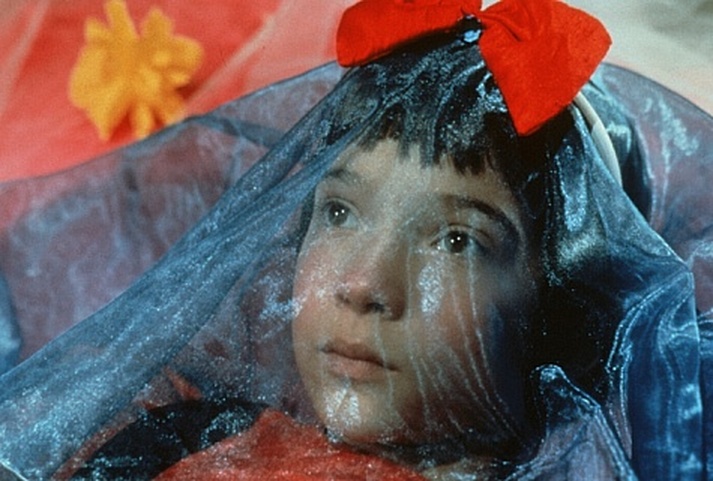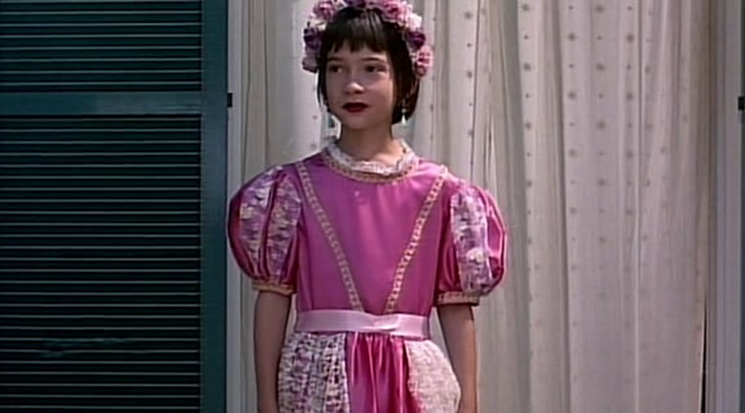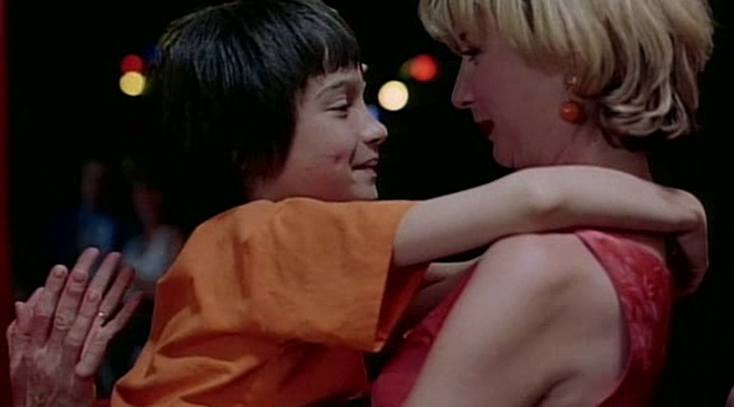|
by Anuja Pal I happened to come across Ma Vie En Rose on some obscure corner of the internet (not really). The film, a Belgian drama, is about a 7 year old boy named Ludovic Fabre, and his certain belief in the fact that he is a girl and his efforts to make everyone around him believe the same. Indeed, this isn't an easy quest, considering the time when the film is set in (going back almost twenty years) when traditional gender roles were still the strictly followed norm in most places. Although the fact that the film is Belgian must be explicitly mentioned, as it was, and continues to be, one of the most accepting countries when it comes to alternative genders and sexualities, having legalized same sex sexual activity way back in 1795. But even then, transgenders weren't as widely accepted as they are, today, and had to face an immense amount of societal prejudice to reach the position where they now stand, still far away from achieving equality, nevertheless. And this is what the film primarily focuses on - the reactions of society to the person that Ludovic is, starting from his parents to his father's boss and his best friend Jerome, who Ludovic states delightedly he will marry one day. Jerome also happens to be the son of the boss of Ludovic's father, bringing things to a boil when both the fathers realize that Ludovic harbours romantic feelings for Jerome. The film wastes no time in depicting the story at hand as it begins with a house party where Ludovic dresses up in attire meant to make him look like a princess. "I wanted to be pretty.", he honestly says, when confronted by his parents. They dismiss it as a one-time case of ‘unnatural’ behaviour. “It’s normal until 7”, says his mother confidently, having read it in a Marie Claire issue. The only person in the Fabre family who is wholly accepting of Ludovic is his grandmother, who tries in vain to convince the parents to just let him be. The issues depicted in the film, though serious, are portrayed in a light hearted manner, presumably because we are seeing it through the eyes of a seven year old, and because this belongs to the genre of comedy. And maybe this is the point of it all - to show us the innocence that these 'social outcasts' begin their journey of real life with, that alternative genders aren't a scheme to turn society upside down, but they are intrinsic traits that develop in seven year olds like Ludovic as they grow up. That their minds aren't manipulated by evil forces, as they say in our own country, but are driven by love, irrespective of sex. The mind of a seven year old boy is unable to comprehend the so called error in his ways. Why is wanting to marry Jerome such a bad idea to his parents? Why can he not be a girl when he grows up? His childish imagination runs wild and stems from his favourite TV character, about a princess in a world of fantasy, Pam, who has the perfect life with her boyfriend Ken, and brandishes her magic wand, conjuring up wonder in the eyes of Ludovic, every time he sees them. He imagines himself in the place of Pam, and Jerome as Ken, making up a world of his own in his mind, which unfortunately may not be realized when the time does come for him when he realizes the ways of the world in which he lives in. Ma Vie En Rose translates to ‘My Life in Pink’, and although no colour can be representative of a gender, the title was probably necessary to point out the strict gender roles that have always been imposed on society, that are slowly but surely fading out now – pink is for girls, blue for boys. Girls should have long hair to look more feminine, boys should always have their hair cut short to bring out the ‘man’ in them and so on. "My X fell into the bin!", Ludovic screams delightedly when he thinks that is the answer as to why he wasn't born a girl. Therein lies the problem. From a very young age, we are told what we are supposed to be, by our parents, relatives and gossiping neighbours, instead of being allowed to mould into the person that we inherently are. Ludovic has been told by his parents that he shouldn't wear dresses, as they are only for girls. He shouldn't think of marrying Jerome as boys don't usually marry each other. We are constantly told by people all around us, what to do, what not to, how to behave. We are taught how to live, until something fires up inside us, at some point in our lives, when we abandon the rules and make our own. But this is, at heart, a story of a parent and child, rather than transgenderism itself. Watch it to make yourself smile and to make yourself resonate with the various emotions that Ludovic has to go through, for I’m sure that you too, have had moments in your life when crying to yourself was the only way out when your parents did not seem to understand you, when friends were nowhere to be found, and when your own thoughts in your little, muddled up mind were your only way to escape.
Follow us on Facebook and Instagram to be notified whenever we release new articles.
Do you use an RSS reader? Even better!
1 Comment
|
Categories
All
Archives
December 2022
|



 RSS Feed
RSS Feed
